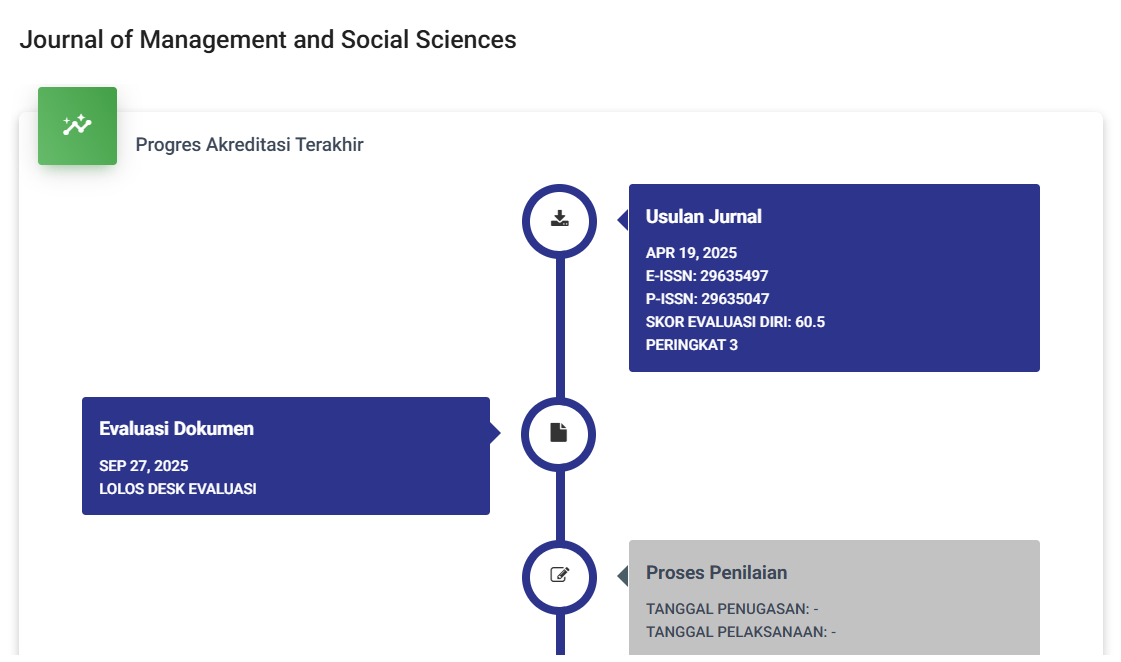The Concept of Ulil Amri in Al-Sunnah: Theological and Social Implications in Nationhood
DOI:
https://doi.org/10.55606/jimas.v3i4.1547Keywords:
Ulil Amri, Obedience, Government, Islamic PoliticsAbstract
This research aims to examine the concept of Ulil Amri as described in the Quran and Sunnah, and how obedience to Ulil Amri is applied in the context of nationhood, particularly within modern political systems. The research uses a qualitative method with a descriptive-analytical approach, focusing on the interpretation of religious texts and related literature. Primary data sources include the Quran, Hadith, and the commentaries of classical and contemporary scholars, such as Ibn Qayyim, Al-Tabari, and Yusuf Al-Qaradawi. The main findings indicate that obedience to Ulil Amri has clear limitations, particularly when leaders do not govern in accordance with Islamic law. Additionally, the concept of Ulil Amri faces challenges in the modern era, especially in countries that do not fully implement Sharia law. The role of scholars in ensuring that leaders' policies remain aligned with Islamic values has become increasingly significant. The research concludes that obedience to Ulil Amri remains relevant; however, Muslims must balance this obedience with constructive criticism through the principle of Amar Ma’ruf Nahi Munkar when necessary. Consequently, this study suggests that the concept of Ulil Amri in Islam can be dynamically applied within the framework of modern governance.
References
AbuSulayman, A. (1993). Towards an Islamic Theory of International Relations: New Directions for Methodology and Thought. International Institute of Islamic Thought (IIIT).
Al-Mawardi, A. (1996). Al-Ahkam al-Sultaniyyah: The Laws of Islamic Governance. Ta-Ha Publishers.
An-Na'im, A. A. (2008). Islam and the Secular State: Negotiating the Future of Sharia. Harvard University Press.
Bassiouni, M. C. (2014). The Sharia and Islamic Criminal Justice in Time of War and Peace. Cambridge University Press.
Crone, P. (2005). Medieval Islamic Political Thought. Edinburgh University Press.
Dallal, A. (2003). Islamic Studies in Transition: Towards a New Modernism. American University in Cairo Press.
Faruki, K. (1981). Islamic Jurisprudence. Biblio Distribution.
Hefner, R. W. (2011). Shari’a Politics: Islamic Law and Society in the Modern World. Indiana University Press.
Hodgson, M. G. S. (1974). The Venture of Islam: Conscience and History in a World Civilization. University of Chicago Press.
Kamali, M. H. (2003). Freedom, Equality and Justice in Islam. Islamic Texts Society.
Khalid, F. (2013). Islam and the Environment: Ethical Dimensions of Islamic Political Thought. IIIT Press.
Khan, M. (2014). The Quran and Islamic Jurisprudence: An Introduction to Classical and Modern Interpretations. Oxford University Press.
Lapidus, I. M. (2002). A History of Islamic Societies. Cambridge University Press.
Rahman, F. (2009). Islam and Modernity: Transformation of an Intellectual Tradition. University of Chicago Press.
Ramadan, T. (2009). Radical Reform: Islamic Ethics and Liberation. Oxford University Press.
Saeed, A. (2006). Interpreting the Quran: Towards a Contemporary Approach. Routledge.
Sardar, Z. (2004). Desperately Seeking Paradise: Journeys of a Skeptical Muslim. Granta Books.
Schacht, J. (1964). An Introduction to Islamic Law. Oxford University Press.
Weiss, B. G. (1998). The Spirit of Islamic Law. University of Georgia Press.
Zubaida, S. (2003). Law and Power in the Islamic World. I.B. Tauris.
Downloads
Published
Issue
Section
License
Copyright (c) 2024 Dadang Syaripudin, Nanang Naisabur, Ramin Ramin

This work is licensed under a Creative Commons Attribution-ShareAlike 4.0 International License.








